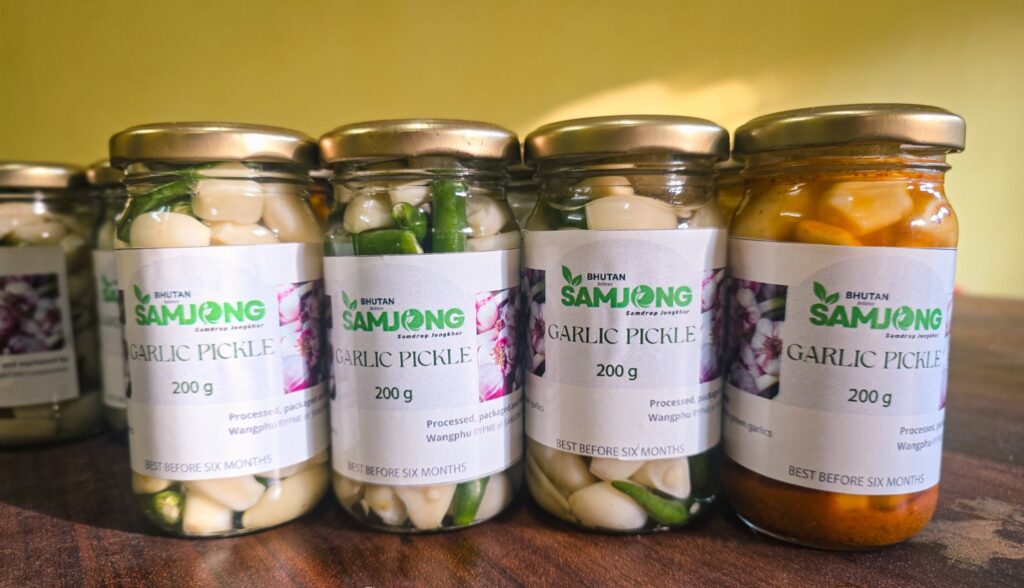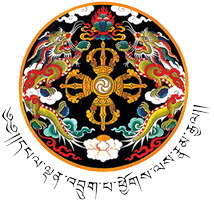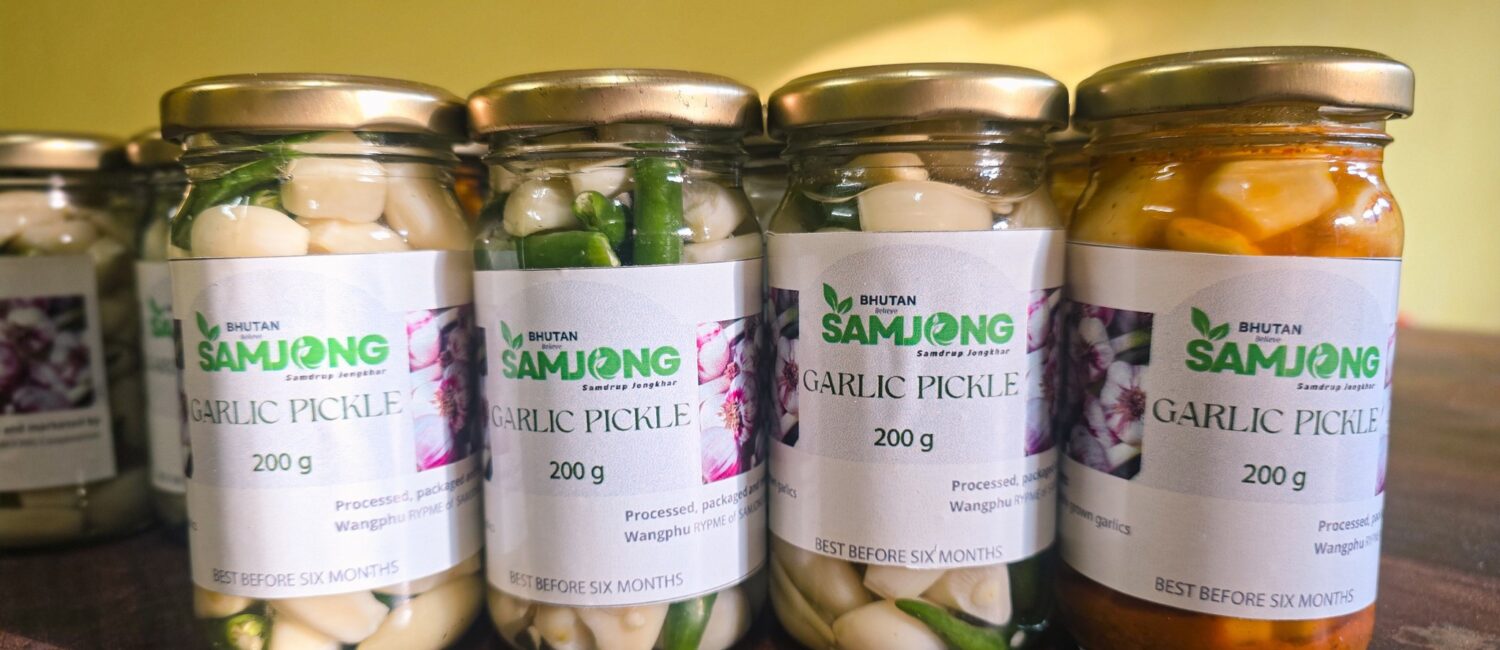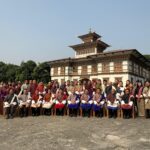In a renewed push to elevate rural enterprise and strengthen local economies, the Samdrup Jongkhar Dzongkhag Administration, in close collaboration with the NPHC Sub-Centre Pemagatshel and the Wangphu Gewog Administration, has rolled out a specialised garlic pickling training for members of the RYPME, Wangphu, and the Garlic Informal Farmer Group. The initiative, supported by the Bhutan Foundation, marks a significant step in empowering small-scale producers with value-addition skills rooted in local tradition.
Wangphu, long celebrated for its organic garlic, as well as its famed tengma and rajma beans, served as the ideal training ground. Resource persons from the NPHC Sub-Centre introduced participants to six distinct varieties of garlic and ginger products, including roasted and unroasted garlic pickles, vinegar-based garlic pickle, boiled garlic pickle, ginger pickle, and ginger paste. The hands-on sessions offered farmers not only technical expertise but also practical exposure to improving quality and extending shelf life.
Beyond the flavours and techniques, the programme carries a broader economic ambition: to strengthen the Samjong product line, diversify income sources, and build resilience among rural communities. By equipping farmers with new skills in value addition, the training aims to create market-ready products with stronger branding potential and wider consumer appeal.
Local officials say the intervention is part of a larger vision to boost rural entrepreneurship and advance Bhutan’s evolving food economy. For the farmers of Wangphu, it is a step toward transforming their well-known garlic into a competitive product with national and potentially regional demand.
As one participant remarked, “We have always grown good garlic. Now we know how to turn it into something even more valuable.”







